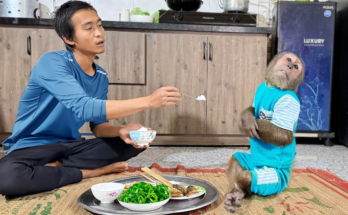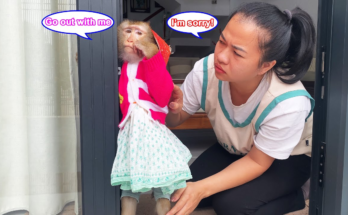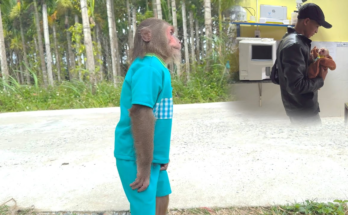The phone buzzed late in the afternoon, just as Mom was finishing up folding laundry. It was a message from the vet. Her heart skipped a beat when she saw the preview text: “We need to talk about Poki’s condition.”
She immediately called back, her hands trembling slightly. Poki, the family’s small, energetic Pomeranian, had been acting unusual for the past few days—less energetic, not finishing his food, and whining softly in his sleep. She had thought maybe it was just a cold or the weather change, but something inside her had urged her to take him in just in case.
Now, as the vet calmly explained over the phone that Poki might have a more serious underlying issue—a possible autoimmune disorder—Mom felt the ground shift beneath her feet. Her eyes welled with tears. Poki had been with them since he was a puppy, a birthday gift for her youngest daughter. He had grown into much more than a pet; he was family.
The thought of him being in pain or worse, of not having him there to bark when the mail came or to curl up next to her on the couch, was unbearable.
“What do we do next?” she asked quietly.
The vet recommended more tests and possibly starting treatment right away. There was hope, he reassured her, but it would take time and close monitoring.
Hanging up the phone, she wiped her eyes and looked down the hall where Poki lay on his bed, looking up at her with soft eyes, his tail giving a gentle wag. She walked over, knelt beside him, and stroked his fur.
“It’s going to be okay,” she whispered, more for herself than for him.
Whatever came next, she would be there every step of the way. Because when someone you love is hurting—even if they have four legs and a wagging tail—you do everything you can to help them heal.



